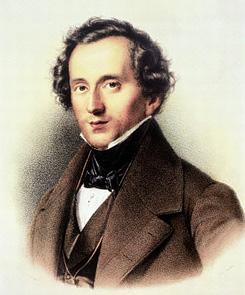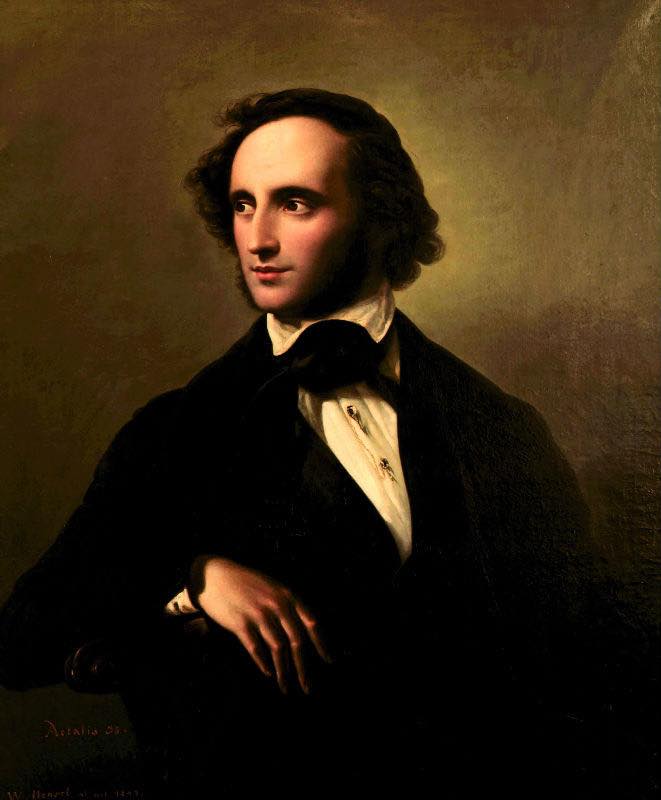In 1829, a young Felix Mendelssohn, fueled by a fervent passion for a forgotten master, orchestrated a musical resurrection that would forever alter the course of music history. His performance of Johann Sebastian Bach’s St. Matthew Passion in Berlin was not merely a concert; it was a cultural awakening, bringing to light the genius of a composer relegated to the shadows of time.
The Forgotten Master and the Young Prodigy
The early 19th century saw Bach’s music languishing in obscurity, deemed antiquated by a rapidly evolving musical landscape. It was Mendelssohn’s youthful curiosity that would unearth this buried treasure.
A Musical World in Transition
The musical tastes of the early 19th century were shifting, with the elegance and drama of the Classical and Romantic periods taking center stage.

- Bach’s Obscurity:
- Bach’s intricate counterpoint and complex harmonies were perceived as outdated, overshadowed by the more accessible styles of contemporary composers.
- It highlighted Bach’s obscurity.
- The Rise of Romanticism:
- The emotional intensity and dramatic flair of Romantic music captivated audiences, leaving little room for the perceived formality of Bach’s work.
- It showed the rise of Romanticism.
- A Lost Legacy:
- Bach’s vast body of work, once celebrated, was gradually forgotten, confined to dusty archives and scholarly circles.
- It highlighted a lost legacy.
Mendelssohn’s Discovery and Passion
Mendelssohn, a musical prodigy with a keen interest in the past, stumbled upon a manuscript of the St. Matthew Passion, sparking a profound connection.

- A Chance Encounter:
- The discovery of the manuscript was a serendipitous moment, a twist of fate that would change the course of music history.
- It highlighted a chance encounter.
- Captivated by Complexity:
- Mendelssohn was immediately struck by the beauty and complexity of Bach’s masterpiece, recognizing its timeless genius.
- It showed captivated by complexity.
- A Mission of Revival:
- He became determined to bring Bach’s music back to life, driven by a deep respect for the composer and a desire to share his brilliance with the world.
- It highlighted a mission of revival.
The Resurrection and its Impact
Mendelssohn’s perseverance in reviving the St. Matthew Passion led to a transformative performance that reignited interest in Bach’s music, securing his place in the musical canon.
Overcoming Skepticism and Preparation
Mendelssohn faced skepticism from those who doubted the appeal of “ancient” music, but he remained steadfast in his conviction.

- Persuading Devrient:
- He enlisted the help of his friend Eduard Devrient, recognizing the importance of a compelling performance to capture the audience’s attention.
- It highlighted persuading Devrient.
- Battling Skepticism:
- He had to overcome resistance from those who believed audiences would find Bach’s music too complex and outdated.
- It showed battling skepticism.
- Painstaking Study:
- Mendelssohn meticulously studied the score, immersing himself in Bach’s intricate harmonies and dramatic narrative.
- It highlighted painstaking study.
A Transformative Performance
The 1829 performance was a watershed moment, not only reviving the St. Matthew Passion but also sparking a renewed appreciation for Bach’s entire oeuvre.
- Emotional Impact:
- The audience was deeply moved by the emotional power and dramatic intensity of Bach’s music, experiencing a profound connection with the past.
- It highlighted emotional impact.
- Rediscovering Genius:
- The performance revealed the timeless genius of Bach’s composition, demonstrating its relevance to a new generation.
- It showed rediscovering genius.
- Global Recognition:
- The success of the revival led to a global resurgence of interest in Bach’s music, securing his place as a master of the Baroque era.
- It highlighted global recognition.
Mendelssohn’s Enduring Legacy
Mendelssohn’s dedication to reviving Bach’s music stands as a testament to the power of artistic vision and the enduring influence of musical masterpieces.
A Catalyst for Change
Mendelssohn’s performance acted as a catalyst, sparking a cultural shift that brought Bach’s music back into the forefront of the musical world.
- Preserving Musical Heritage:
- His efforts highlighted the importance of preserving and celebrating musical heritage, ensuring that timeless masterpieces are not forgotten.
- It highlighted preserving musical heritage.
- Influencing Future Generations:
- His revival of Bach’s music influenced composers and audiences alike, shaping the course of Western classical music.
- It showed influencing future generations.
- A Legacy of Passion:
- Mendelssohn’s passion and vision serve as an inspiration, reminding us of the transformative power of art and the importance of honoring the past.
- It highlighted a legacy of passion.
Conclusion:
Felix Mendelssohn’s 1829 performance of Bach’s St. Matthew Passion was a pivotal moment, not only reviving a forgotten masterpiece but also reigniting interest in the composer’s entire body of work. His dedication and vision ensured that Bach’s genius would be recognized and celebrated for generations to come, securing his place in the pantheon of musical giants.
